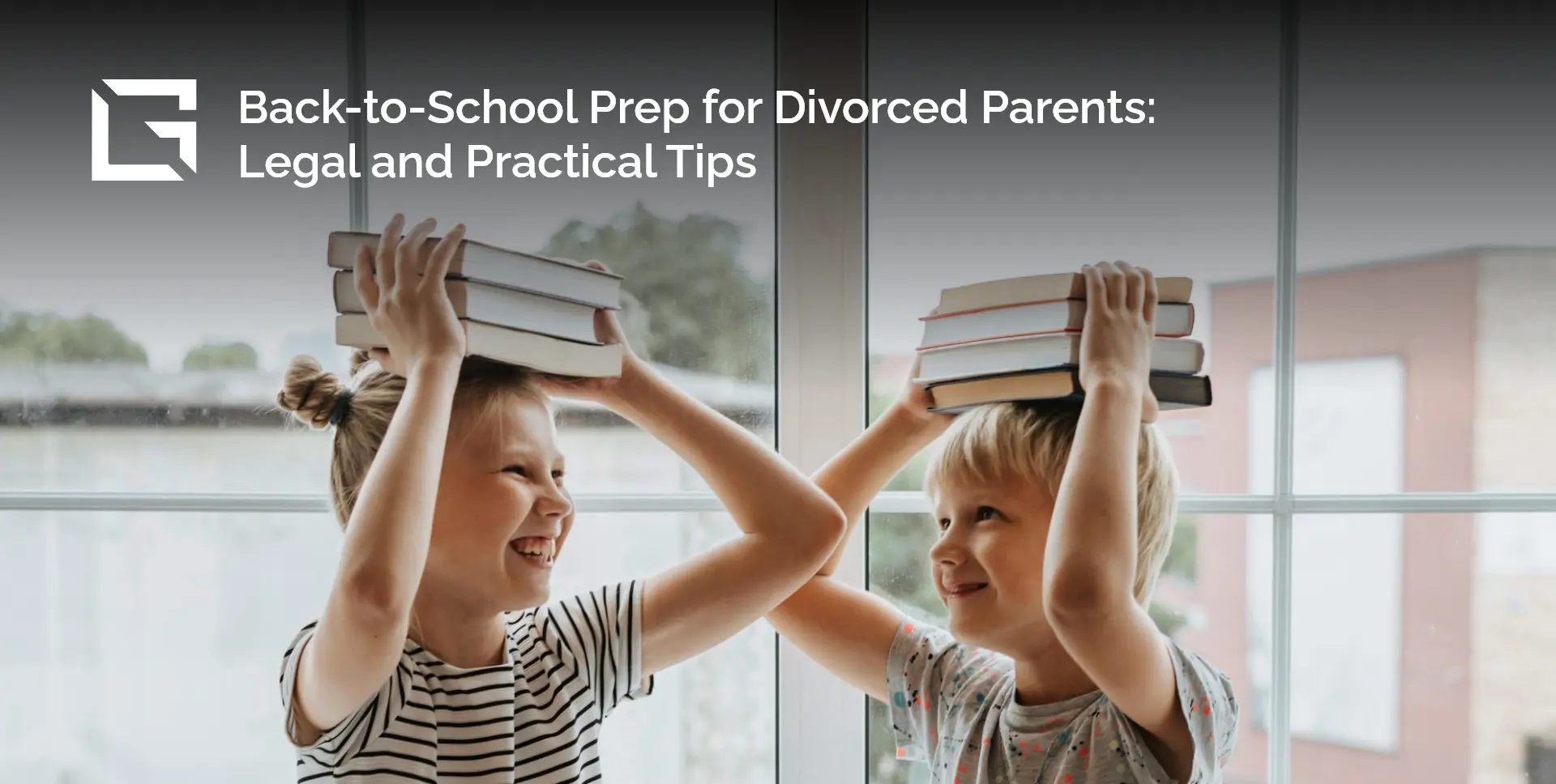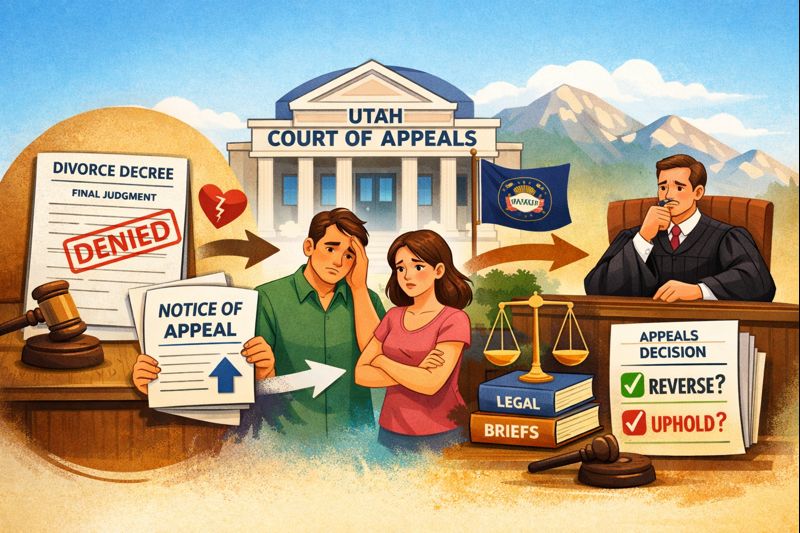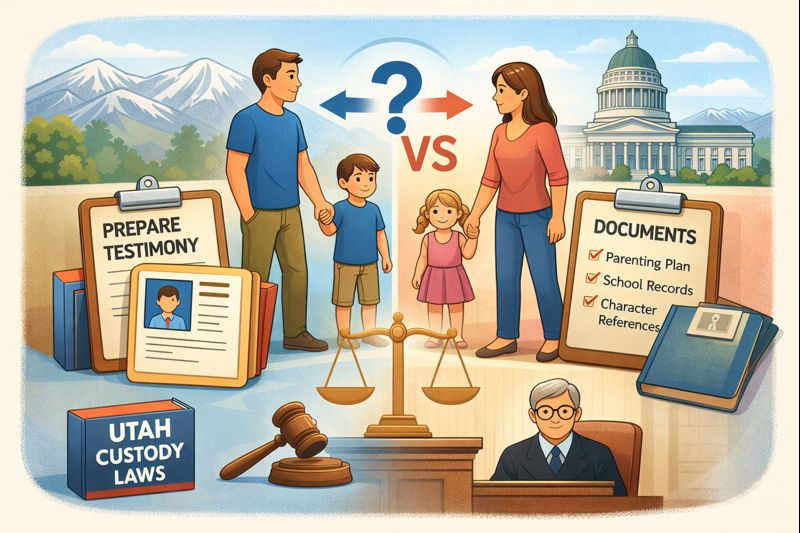As the final weeks of summer slip away, many families are checking school supply lists, finalizing class schedules, and preparing to swap lazy mornings for early alarm clocks. But for divorced or co-parenting families, back-to-school season isn’t just about sharpened pencils and new backpacks. It’s also a time when legal agreements, logistical coordination, and emotional well-being collide—often all before the first bell rings.
If you’re a divorced parent—or in the process of separating—this time of year can bring up questions like:
- Who’s paying for the Chromebook?
- Which house should the child do homework at?
- How do we make sure both parents are looped in on school updates?
- What happens if we disagree about school choice or an extracurricular activity?
At Gibb Law Firm, we know how challenging these questions can feel. The good news? You don’t have to figure it all out alone. Below, we’re walking you through legal and practical tips to help divorced or co-parenting families prepare for the school year with clarity, cooperation, and confidence.
1. Legal Custody and School Decisions: What the Law Says
When it comes to decisions about your child’s education—what school they attend, what classes they take, which special services they receive—the answer typically lies in your custody agreement.
Joint Legal Custody? You Both Get a Say
In Utah and many other states, joint legal custody means both parents share the right—and the responsibility—to make major decisions about their child’s life. That includes educational decisions.
Let’s say one parent wants to enroll the child in a private charter school across town while the other parent prefers keeping the child in their current public school. If you have joint legal custody, one parent can’t unilaterally make that switch. You’ll need to reach a mutual agreement or involve the court if an impasse occurs.
Action Step: Review Your Parenting Plan
Before back-to-school season ramps up, pull out your parenting plan and take note of:
- Who has legal custody (joint or sole)?
- Is there language about school decision-making or educational expenses?
- Are there provisions for resolving disagreements?
If your current plan is vague or silent on educational matters, it may be time to update it proactively—before conflict arises.
2. School Supplies, Uniforms, and Technology: Who Pays for What?
School expenses aren’t what they used to be. In addition to notebooks and lunchboxes, many families are now budgeting for laptops, activity fees, sports uniforms, and classroom contributions.
Parenting Plans Can—and Should—Address Expenses
A well-written parenting plan will often include specific language around dividing educational costs. For example:
- Parent A pays 70%, Parent B pays 30%
- Each parent is responsible for expenses during their parenting time
- Technology expenses are shared equally
Without clear terms, disagreements about who covers what can spiral quickly. If you find yourself frequently battling over back-to-school budgets, a modification to your agreement may be appropriate.
Practical Tip: Use a Shared Expense App
Apps like OurFamilyWizard, TalkingParents, or Splitwise help co-parents track, split, and reimburse expenses with minimal drama. You can upload receipts, calculate owed amounts, and create transparency around costs.
3. Coordinating Schedules: Routines, Calendars, and Pick-Ups
Even in the most amicable co-parenting arrangements, logistics can get messy without a clear system in place. That’s especially true when the school year begins.
Why Consistency Matters
Children thrive on routine, especially after transitions like divorce. When both households operate with similar expectations around wake-up times, homework, screen use, and bedtimes, kids feel more stable and less stressed.
Create a Shared School-Year Calendar
Whether it’s a Google Calendar or a co-parenting app, having a shared calendar makes life easier for everyone. Include:
- Drop-off/pick-up responsibilities
- Parent-teacher conference dates
- School holidays and early dismissals
- Extracurricular events
- Assignment deadlines or testing days
Make it accessible to older children if appropriate, so they can develop a sense of responsibility too.
Example: Pick-Up Problems
If Dad is late to pick up from soccer practice or Mom forgot it was her turn for morning drop-off, that’s not just inconvenient—it’s confusing and stressful for the child. Use written schedules, set reminders, and communicate in advance about any changes.
4. Communicating with Teachers and Schools: What to Know
Important details can fall through the cracks if your child’s school is unaware of your custody arrangement.
Notify the School in Writing
Let the school know:
- Which parent does the child live with primarily
- Who has legal custody
- Who is authorized to pick up the child
- Who should receive report cards, teacher emails, or behavioral updates
Provide a copy of your custody order if needed. Many schools will keep this on file and refer to it when issues arise.
Open Communication Is Key
It’s also smart to introduce both parents—via email or in person—so teachers know you’re both involved. You don’t have to co-attend every PTA meeting, but you should both be informed and engaged.
And yes, if there’s a history of high conflict or no-contact orders, those boundaries need to be communicated with school staff to ensure your child’s safety and compliance with court orders.
5. Emotional Prep: Helping Kids (and Parents) Ease Into the Year
Legal logistics aside, this time of year can bring big emotions for parents and kids alike. Your child might feel nervous, excited, or even sad about returning to school with new routines.
Validate Their Emotions
Reassure them that it’s okay to feel mixed emotions—and that both parents are there to support them. Avoid using school as a battleground for power struggles or using your child as a go-between for relaying messages.
Meet with a Counselor or Therapist If Needed
If your child is showing signs of anxiety or difficulty adjusting, consider a few sessions with a child therapist who can offer tools and strategies for coping.
6. When Legal Help Is Needed
Sometimes, no matter how well you plan or how flexible you are, co-parenting around school issues just isn’t working.
You may need legal support if:
- One parent is making unilateral school decisions against the agreement
- There are disputes over high-cost items (like tutoring or private school tuition)
- The parenting plan is outdated or unclear
- The child’s school performance is being impacted by parenting conflicts
At Gibb Law Firm, we’ve helped dozens of families in Utah navigate custody updates, mediation, and modifications around educational issues. The goal is not just compliance—it’s creating a parenting framework that puts your child’s needs at the center.
Final Thoughts: It’s Not About Being Right—It’s About Doing Right
Co-parenting during back-to-school season isn’t easy. But when both parents focus on what’s best for the child, rather than who gets the last word, the year starts on a stronger footing.
This season, take a moment to reflect: Are we clear on our roles? Are we aligned in how we support our child? Do we have the tools we need to communicate calmly and effectively?
If not, let’s fix that now—before the school bell rings.
Need Legal Support for the School Year?
If you’re unsure about your rights, responsibilities, or parenting plan, let us help. At Gibb Law Firm, we offer compassionate, personalized legal guidance to help you navigate co-parenting with clarity and confidence.
📞Call us directly at (801) 725-6035 or schedule a consultation to review your parenting plan before the school year begins, as your child deserves stability, and you deserve peace of mind.
Disclaimer: This article is for informational purposes only and does not constitute legal advice. Please contact us to discuss the specifics of your situation.



